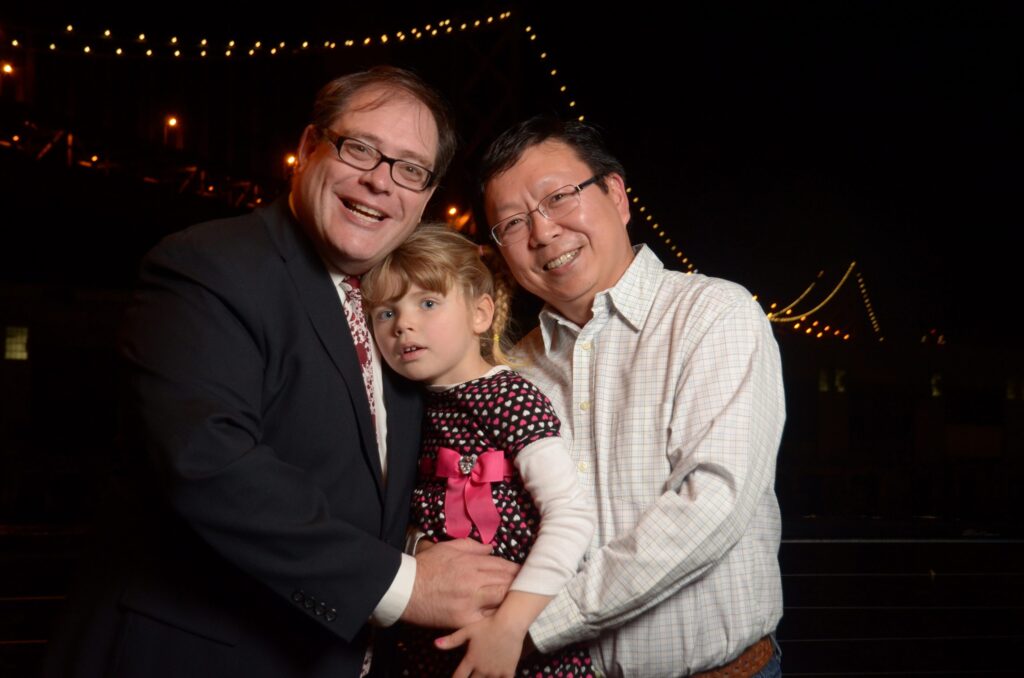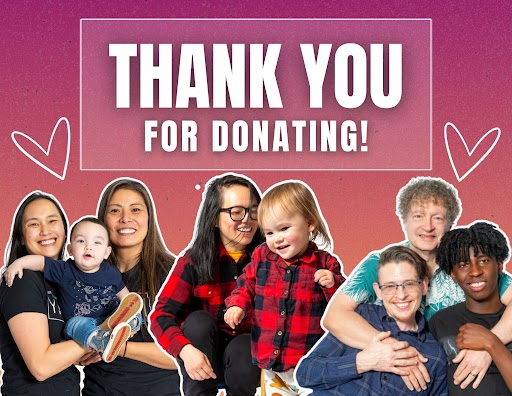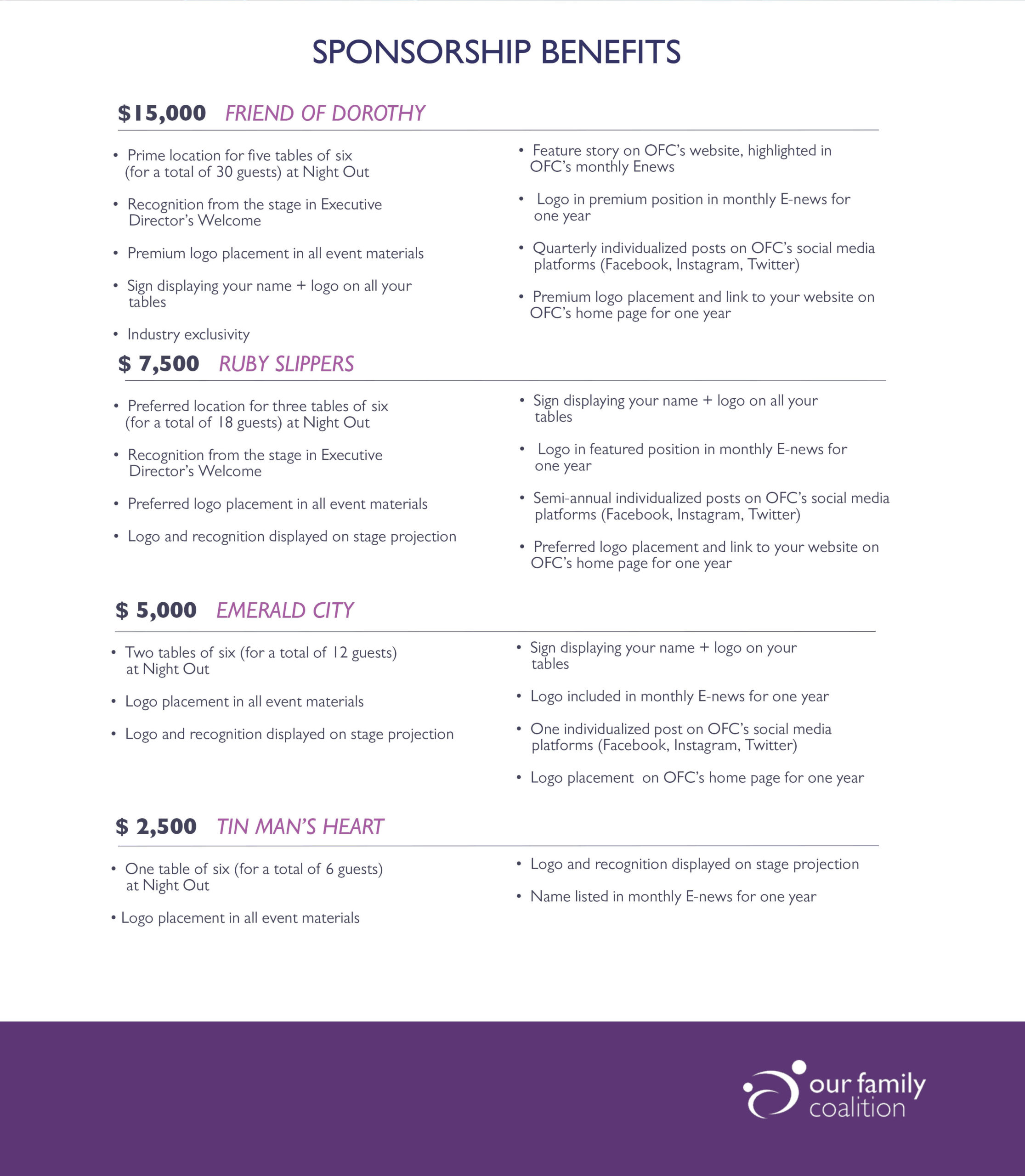By KALW reporter Jen Chien

Mickey, Alicia and Amos Lim
When Amos and Mickey Lim met in 1995, they had no idea they would someday have a daughter together. It just didn’t seem possible. They lived an ocean away from each other, and didn’t know if they would ever even meet face-to-face. That’s because they first connected online, on a gay discussion group.
“Someone was talking about long-term relationships, how there’s no such thing as long-term relationships,” Amos says. “Probably because we don’t see the role models out there.”
That was certainly true for Amos. He’s from Singapore, a country where homosexual acts are still against the law. Mickey was living in Bakersfield at the time.
“I think that when I came out I kind of had the idea initially that I would just be that bachelor–the uncle,” Mickey says. But over time, his views changed. He says it wasn’t until five or six years after he had come out that he decided to stop restricting himself mentally. “I can do anything I want,” he says. “The question then becomes: do I want a long-term, lifelong relationship? Do I want to have a family? Do I want to have children? I couldn’t conceive of any reason not to, other than I hadn’t met the right person to do it with.”
So Mickey wrote back to Amos, and shared his own experience. They started corresponding. Long emails turned into long phone calls, and a couple of years later, Mickey went to visit Amos in Singapore.
“We met and immediately realized well, oh, we’re in love!” Mickey says with a laugh. The two have been together now for over 20 years, and their love plays out in an everyday way, in the home they’ve made together with their six-year old daughter Alicia.
On a recent morning, Amos gets Alicia’s lunch ready and makes sure the kitchen is clean, as Mickey struggles to get her to brush her teeth. Once that’s done, Mickey will drop Alicia off at school, then drive to his job as a pharmacist for the AIDS Healthcare Foundation. Amos is the volunteer director of a nonprofit, but he calls himself a stay-at-home dad. He says he and Mickey share responsibility for domestic duties — there’s not a clear division.
“I don’t see it as a 50/50, i see it as 100/100,” Amos says.
Mickey agrees. “I think we both want to participate in the raising of our child. … Nobody gets any down time here — it’s all go.”
They share duties like this for a reason. When Amos first came to the US in 1999, he was on a series of temporary visas — his status was often uncertain. Because of that uncertainty, and because Amos first came in on a student visa, they were by necessity a one-income household.
Mickey says that could have created an imbalance in their relationship, but they don’t look at it that way. “What we’ve done and what we continue to do now is that you contribute to the house [and] the family, that which you’re capable of,” he says. “No one thing is one person’s job, it all has to get done. Some things I’m better at than he, and there are things that he’s better at than I am.”
Amos finally got his green card in 2006. He and Mickey felt stable enough to consider adopting a child together, something they had both dreamed of. They were matched with Alicia through a foster-to-adopt program when she was eight months old.
At this point, Amos was working full-time in nonprofit management. They were each able to take a month of parental leave, and after that they just rotated, especially since Amos’ job allowed him to work from home part of the time.
When the economy tanked, though, Amos lost his position. Alicia was receiving therapy for developmental delay — six hours a week — so they decided that Amos would stay home with her. Mickey once again became the sole breadwinner.
“It worked out that way, and sometimes I’m jealous, and sometimes I’m grateful,” Mickey says.
Mickey and Amos both say that the models of parenting and partnership that have been handed down to them don’t always apply to their family.
“We don’t fit into ‘I’m the husband, you’re the wife,’ or ‘This is what husbands do and this is what wives do’ — because we do both,” Amos says.
But both men say they’ve felt the discomfort of not conforming to traditional expectations. When filling out an application for Alicia’s social security card, Mickey discovered the the form only had fields for “father” and “mother.” He says the clerk was not very helpful — she asked them to just pick one. Since he had taken Amos’ last name when they married, and therefore had a “maiden name,” he put himself on the form as Alicia’s mother.
For his part, Amos says it can be challenging being the only dad in a roomful of moms, like when he volunteers at Alicia’s school. And there’s the fact that he’s an Asian man with a blonde, blue-eyed white child. He says he’s felt people’s suspicion at times when he’s at the playground with Alicia, and she throws a tantrum because she doesn’t want to leave.
“People take a second look… and you know, I’ve got somebody come up to me and say, ‘Should I be worried?’ I’m like: ‘No you shouldn’t be worried, she’s my daughter.’”
Mickey says they have also been surprised by the way some friends have reacted to their decision to raise a child together. “I think that the straight couples with kids are actually more accepting or more shrugging-their-shoulders of it than gay people without kids,” he says. “We had friends who were at our wedding when Alicia was two, and like, never saw them again.”
Mickey says he thinks these friends probably disapprove of his and Amos’ decision to follow what seems like a traditional or conventional path, but he sees it differently. “I think it goes back to not understanding that you can make it whatever you want. You can have the life that you choose to have. Not the life that you ran away from, but rather, the life that you’re walking and running toward.”
These two fathers are walking and running toward a life that they once could barely even dream of, and are now defining on their own terms.



